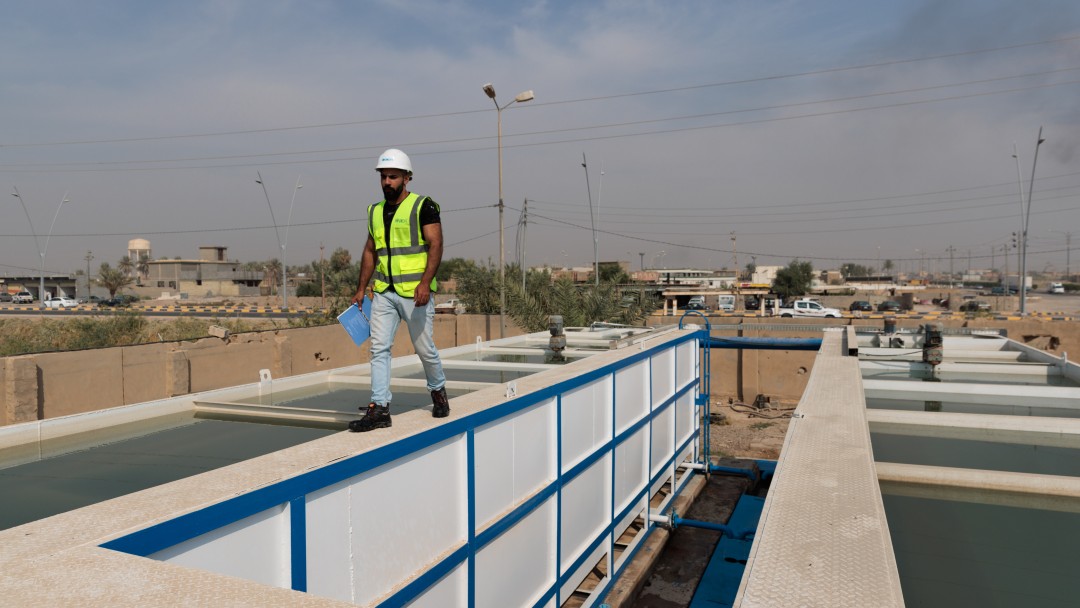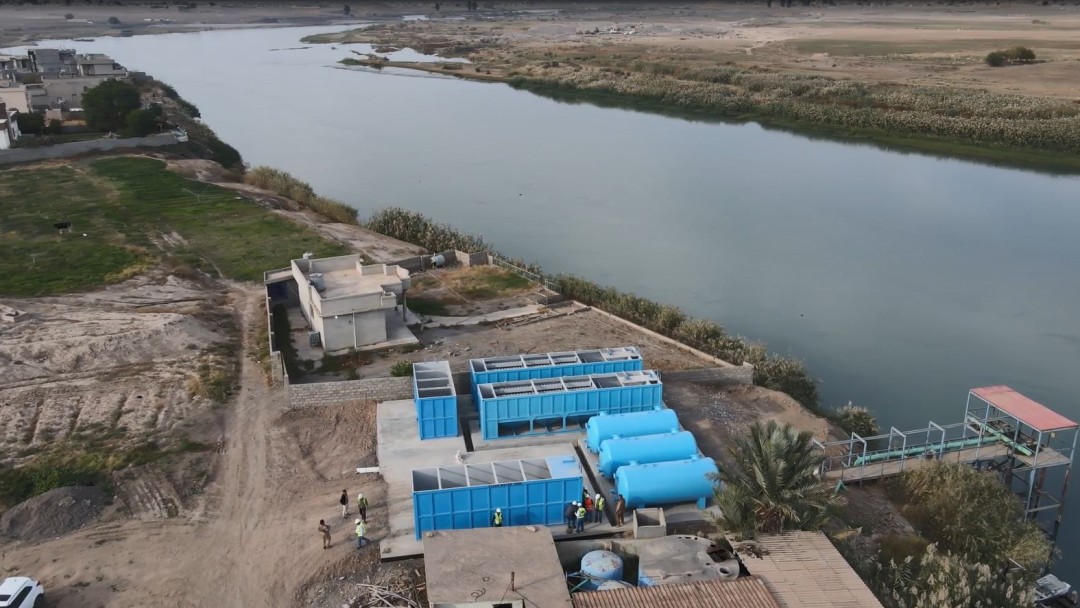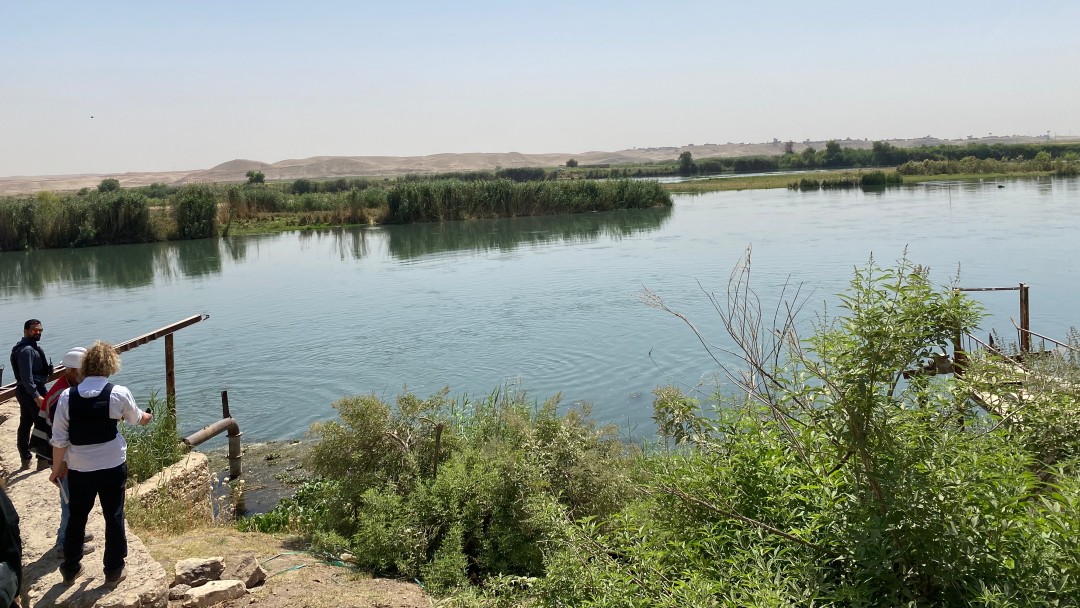
Iraq has been a war-torn country for decades. The Gulf War of the 1980s and the subsequent Second Iraq War were soon followed by the war against the Islamic State. Since the crushing of IS, the country's deep political, confessional and territorial divisions have become all the more apparent. The country's long-term stabilisation and development also depend on the future of the still more than 1.1 million internally displaced persons (IOM, December 2023). Almost 5 million IDPs have already returned to their homes – which means that much basic infrastructure has already been rebuilt or rehabilitated. KfW Development Bank is also making a contribution to this on behalf of the Federal Foreign Office. KfW already granted an untied financial loan (UFK) of EUR 500 million to the Iraqi government in 2017. In past years, these funds have been used, for example, to rebuild eight mobile transformer stations in and around Mosul, which supply 140,000 households as well as hospitals and schools. A bridge in the second largest Iraqi city, Mosul, has also been rehabilitated, as well as three others in the Nineveh region and the main road from Mosul to Baghdad has been repaired over a length of approx. 95 km; hospitals at twolocations are also being extensively rehabilitated. All of this creates prospects – and trust in the state – for the refugees and contributes to the stabilisation of the country. All measures are planned and implemented in close coordination with the Iraqi ministries. The Iraqi Reconstruction Fund for Areas Affected by Terrorist Operations (ReFAATO) plays a coordinating role.
The supply of clean water is one of the most important prerequisites for communities to provide adequate living conditions. During the period after the fall of Saddam Hussein's regime and especially during the IS occupation in recent years, existing water supply systems suffered from lack of maintenance, lack of spare parts and chemicals for treatment, as well as poor operational management due to lack of technical staff or even, in some cases, the direct impact of military operations. In addition, the year 2023 was the third year of drought in a row – a consequence of the climate change. This makes sustainable use of the rare water reserves all the more important.

In the Mosul / Nineveh region, the population reportedly suffers from typical waterborne diseases – discouraging IDPs from returning to the region. 45 million from the UFK will be invested for a water component with "quick-win measures". This will improve the drinking water supply and sanitation conditions in the liberated areas in the Nineveh region. The investments include water catchments, water treatment plants, transmission lines and reservoirs. In addition, equipment and vehicles have been procured for the wastewater and water authorities in Nineveh so that they can carry out the necessary repair work on networks and facilities, as well as cleaning work on the sewer network in hard-hit Mosul.

A total of 23 water treatment plants are being installed at several locations, 22 of which were completed and commissioned in 2023. Before "raw water" has been taken untreated from the Tigris and pumped into the distribution systems without disinfection. As a result, the population suffers from typical waterborne diseases, especially diarrhoea. After completion, 240,800 people are expected to benefit from a direct and safe water supply, and another 20,000 to 30,000 will be supplied by tankers.
"Improving the water supply will be a factor in the continued return of refugees and IDPs to their homes," says Lena Pohl, who is responsible for the water component of the programme at KfW Development Bank. "Families are more likely to return if they know they will be provided with safe water in their place of residence".
Share page
To share the content of this page with your network, click on one of the icons below.
Note on data protection: When you share content, your personal data is transferred to the selected network.
Data protection
Alternatively, you can also copy the short link: https://www.kfw-entwicklungsbank.de/s/enzBYiWG
Copy link Link copied